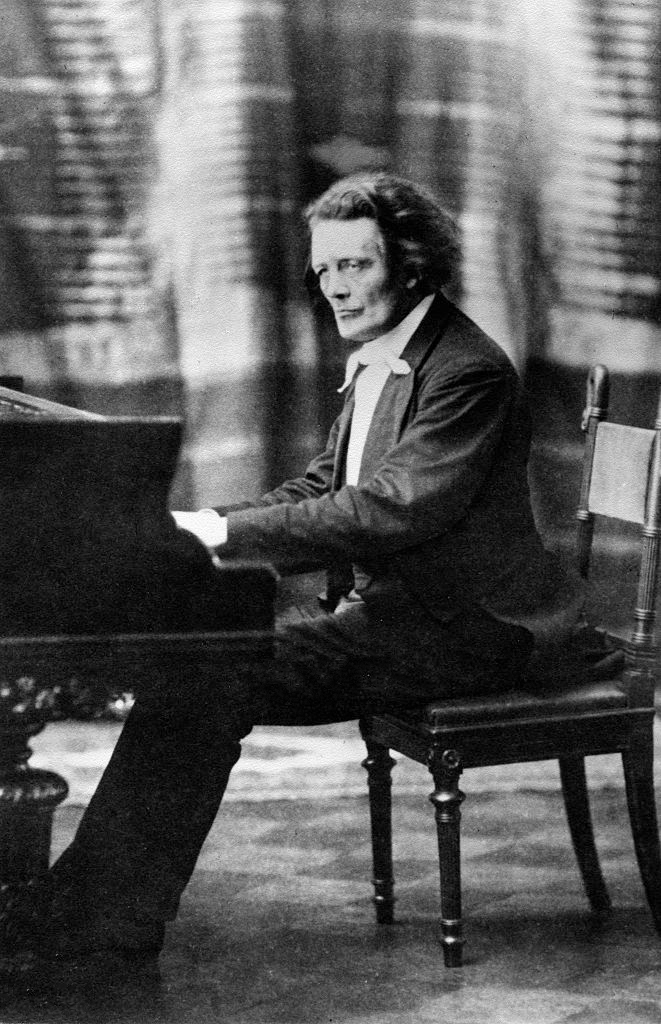Fomka The Fool on:
[Wikipedia]
[Google]
[Amazon]
 ''Fomka the Fool'' '' (Fomka-durachok: russian: Фомка-дурачок)'' is a
''Fomka the Fool'' '' (Fomka-durachok: russian: Фомка-дурачок)'' is a
 ''Fomka the Fool'' '' (Fomka-durachok: russian: Фомка-дурачок)'' is a
''Fomka the Fool'' '' (Fomka-durachok: russian: Фомка-дурачок)'' is a one-act
A one-act play is a play that has only one act, as distinct from plays that occur over several acts. One-act plays may consist of one or more scenes. The 20-40 minute play has emerged as a popular subgenre of the one-act play, especially in writi ...
opera
Opera is a form of theatre in which music is a fundamental component and dramatic roles are taken by singers. Such a "work" (the literal translation of the Italian word "opera") is typically a collaboration between a composer and a librett ...
by Anton Rubinstein
Anton Grigoryevich Rubinstein ( rus, Антон Григорьевич Рубинштейн, r=Anton Grigor'evič Rubinštejn; ) was a Russian pianist, composer and conductor who became a pivotal figure in Russian culture when he founded the Sai ...
to a libretto
A libretto (Italian for "booklet") is the text used in, or intended for, an extended musical work such as an opera, operetta, masque, oratorio, cantata or Musical theatre, musical. The term ''libretto'' is also sometimes used to refer to the t ...
by M. L. Mikhaylov. It was given its only performance in 1853.
Background
''Fomka'' was the second of Rubinstein's operas to be performed. It was commissioned, together with two other one-act operas, '' The Siberian Hunters'' and ''Vengeance
Vengeance may refer to:
*Vengeance (concept) or revenge, a harmful action against a person or group in response to a grievance
Film
* ''Vengeance'' (1930 film), action adventure film directed by Archie Mayo
* ''Vengeance'' (1937 film) or ''W ...
'', by the Grand Duchess Yelena Pavlovna. The first performance was on at the Alexandrinsky Theatre
The Alexandrinsky Theatre (russian: Александринский театр) or National Drama Theatre of Russia is a theatre in Saint Petersburg, Russia.
The Alexandrinsky Theatre was built for the Imperial troupe of Petersburg (Imperial trou ...
in St. Petersburg
Saint Petersburg ( rus, links=no, Санкт-Петербург, a=Ru-Sankt Peterburg Leningrad Petrograd Piter.ogg, r=Sankt-Peterburg, p=ˈsankt pʲɪtʲɪrˈburk), formerly known as Petrograd (1914–1924) and later Leningrad (1924–1991), i ...
. The title role was sung by Lev Leonov, the son of the pianist John Field.
The performance appears to have been a disaster. The composer wrote 'It was performed in such a way that I gathered everything up and do not intend to give any more of my works on the Russian stage .. he performersmissed out whole bars, came in early, forgot their parts . Rubinstein went to the theatre office the next day and insisted that his score be returned to him. The failure was an incentive for Rubinstein to quit Russia to seek a career in Western Europe. Although Rubinstein offered the opera to Franz Liszt
Franz Liszt, in modern usage ''Liszt Ferenc'' . Liszt's Hungarian passport spelled his given name as "Ferencz". An orthographic reform of the Hungarian language in 1922 (which was 36 years after Liszt's death) changed the letter "cz" to simpl ...
to be performed in Weimar
Weimar is a city in the state of Thuringia, Germany. It is located in Central Germany between Erfurt in the west and Jena in the east, approximately southwest of Leipzig, north of Nuremberg and west of Dresden. Together with the neighbouri ...
in 1854,Taylor (2007), 51
the score now appears to be lost.
Roles
References
;Notes ;Sources *Rubinstein, Anton, ed. L. I. Barenboym, ''Autobiograficheskiye Rasskazi'' (in Russian), St. Peterburg, 2005 *Taylor, Philip S., ''Anton Rubinstein: a Life in Music'', Bloomington and Indianapolis, 2007 {{DEFAULTSORT:Fomka The Fool Operas 1853 operas Russian-language operas Operas by Anton Rubinstein Lost operas One-act operas Operas set in Russia